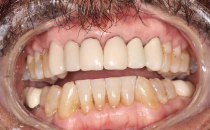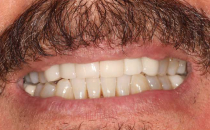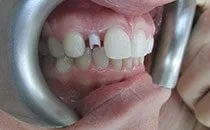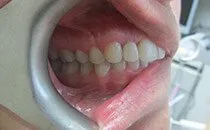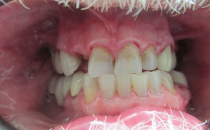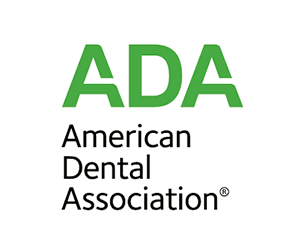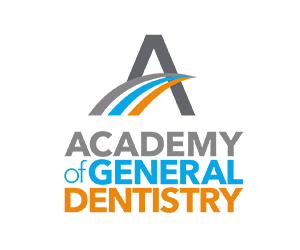How much does a dental crown cost at our office?
Affordable Non-Metal Dental Crowns San Diego
Serving san diego county including escondido, rancho bernardo, poway.
Dental crowns can be used to strengthen the structure of a badly damaged or decayed tooth, protect a weak tooth from breaking, cover a discolored tooth, anchor dental bridges, cap a dental implant, or cover a tooth that has had a root canal treatment.
Dental crowns feel and function like natural teeth and can last 5-15 years. Dental crowns can be made from a number of different materials, including metal, porcelain, resin, or ceramics. If you’re looking for the most durable, and most aesthetically pleasing crowns, Emax crowns and Zirconia is the best of the best.
When are Dental Crowns Necessary?
Dental crowns are like caps that are placed on top of the visible portions of existing teeth. The teeth that require this kind of protective encasement are usually compromised in some way and need extra support, protection, or length/shape. Some applications of dental crowns are:
What is a dental crown?
A dental crown is a dental restoration option for treating badly damaged or weakened teeth. A crown is a type of tooth cap that rests on top of the weak or damaged tooth in order to reinforce it, make it more functional, and prevent further damage. When a filling is insufficient to treat the decay, or when too many fillings have compromised the tooth’s structure, a crown allows the dentist to remove the decay and preserve the rest of the tooth.
A crown is also used as a component of other dental restoration procedures, including dental implants, dental bridges, and root canals. Although there was a time when metal dental crowns were the only option, today non-metal crowns are considered the safer, healthier, more modern, and all-around better option.

Reasons to choose non-metal dental crowns
The most common non-metal crowns are made of porcelain or ceramic, and they offer a wide range of benefits. Here are a few:
- Better health
Many industries outsource components of their trade to other countries. The same is true for dentistry, and in some cases, this has led to traces of lead found in metal crowns. When you choose non-metal dental crowns, you can take this worry off your mind altogether.
- Reduced tooth sensitivity
Metal crowns can cause pain and tooth sensitivity with hot food and drinks. Non-metal crowns won’t conduct the heat down into your tooth in this way, so you can enjoy your food without tooth sensitivity.
- Pleasing appearance
Porcelain and ceramic dental crowns look like natural teeth, so they blend more seamlessly with your other teeth, making them harder to spot than metal crowns. So you can relax knowing people are looking at your smile, not your crowns.
- No MRI interference
Metal crowns interfere with magnetic resonance imaging (MRI), which is used to look inside at your soft tissue. The metal crowns distort the pictures, and in some cases, the problem requires removal of the crowns. Of course, this isn’t always the case, but with porcelain or ceramic crowns, you’ll never have to worry about your metal crowns interfering with an MRI procedure.
- No problems with dental implants
Dental implants involve the use of a titanium post inserted into the jawbone. It’s strong, safe, and biocompatible, and unlike other metals, it doesn’t interfere with the magnetic resonance imaging (MRI). But when other metals are introduced, the conditions in the mouth can lead to the corrosion of the implants. With dental implants, non-metal crowns are always a better option.
Crown replacement procedure
If you already have permanent metal dental crowns but you’d like to have them replaced with non-metal crowns, it’s a good choice that can help give you a sense of relief. The steps for upgrading your metal crowns for non-metal crowns include:
- Local anesthesia is administered to minimize discomfort
- An adhesive is used on the permanent crowns to weaken the cement
- The teeth are cleaned out
- An impression is taken
- Temporary crowns are put in place
- The new crowns are fabricated (this can take weeks)
- A second appointment is scheduled for the new crowns to be cemented in place
If you’re interested in replacing your crowns with non-metal crowns, Dr. Salami can help.
What is an Emax crown?
Emax crowns are the latest in all-ceramic dental crowns, created from lithium disilicate, which is harvested especially for its superb strength and aesthetic qualities. Emax crowns are tougher and more durable than zirconia crowns, making them longer lasting and less prone to chipping. Lithium disilicate is partially translucent, so Emax crowns reflect light just like natural teeth, which is especially important for the teeth that are visible when you smile. In short, Emax crowns offer superior aesthetics and durability, improving tooth structure and strength while also providing a natural-looking appearance.
What are the benefits of Emax crowns?
Emax crowns are an ideal dental restoration solution with a number of advantages over standard porcelain crowns as well as zirconia crowns. The benefits include:
- require only a minimal amount of tooth preparation
- preserve more of the natural tooth structure than other types of crowns
- can strengthen teeth that are broken or fractured
- can restore a large area of decay too severe for filling
- can complete the dental restoration after a root canal procedure
- provide a solid anchor for dental bridges
- can be placed on top of a dental implant for a complete restoration
- Emax crowns are stronger and less likely to chip or crack than other crowns
- can resist more pressure than zirconia crowns
- Unlike porcelain, Emax crowns do not leave a gray line at the gum
- can be easily customized to the perfect fit and shape
- has a natural translucency that mimics natural enamel
- can be matched to the shade of the natural teeth
- look more natural than other types of crowns
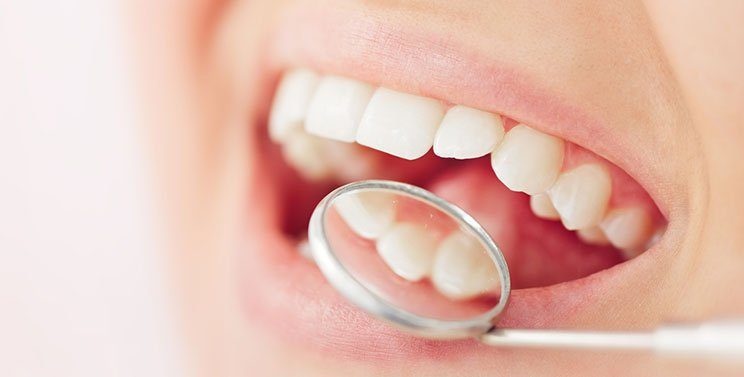
What is an Zirconia crown?
Zirconia crowns are made from zirconium dioxide, a very durable type of metal that’s related to titanium, although it’s categorized as a type of ceramic crown. Zirconia dental crown benefits:
- Strength. One of the biggest advantages of zirconia is its strength and durability. Consider how much force your back teeth exert on the food that you chew.
- Longevity. Zirconia crowns last 10 years or longer.
- Highly biocompatible. Zirconia is suitable for patients with metal allergies or who would prefer to have metal-free restorations.
- Same-day procedure. Same-day crowns involve the use of CEREC technology. Dr. Salami uses a dental milling machine (CEREC) in her dental office to make the crown from a block of zirconia. This process eliminates the need to stretch the procedure into two visits.
The CEREC, or Chairside Economical Restoration of Esthetic Ceramics, the process uses computer-aided design/computer-aided manufacturing (CAD/CAM) technology to speed up this process.
Your amazing smile is only a phone call away. Book your appointment today.
See Results In Our Smile Gallery
